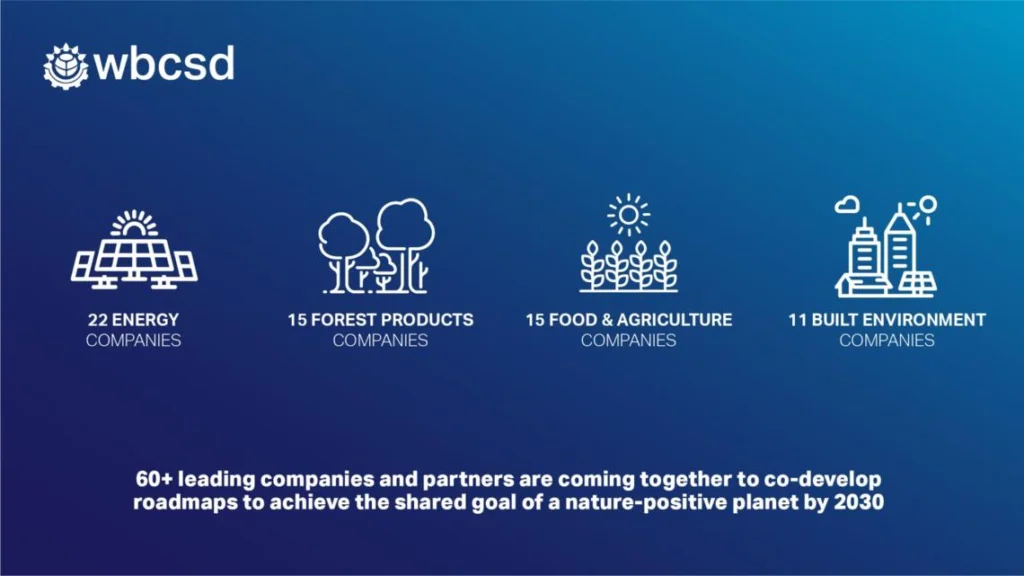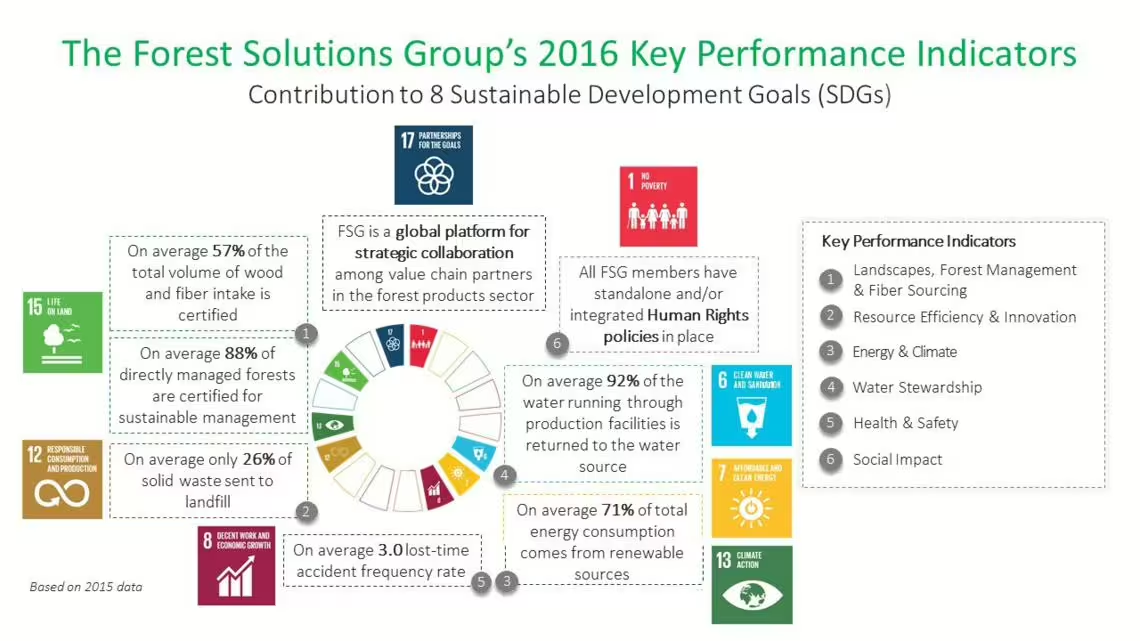For the second year the WBCSD Forest Solutions Group (FSG) released its assessment against the group’s key performance indicators (KPIs).
Members of the WBCSD Forest Solutions Group (FSG) released the results of their key performance indicators (KPIs) for the second consecutive year.
The KPIs demonstrate the role of the forest value chain as a key to global sustainability by contributing to multiple Sustainable Development Goals (SDGs) in addition to climate change mitigation.
71% of onsite energy needs from FSG members are met by renewable sources and 92 % of the water used for production is returned to the water sources.
New qualitative indicators demonstrate FSG’s commitment to produce and source forest products that do not contribute to deforestation, disclose their greenhouse gas emissions, and uphold human rights throughout their business activities.
Geneva, 4 July 2016 – for the second year the WBCSD Forest Solutions Group (FSG) released its assessment against the group’s key performance indicators (KPIs). Based on the FSG Membership Principles & Responsibilities, members measure performance across six core environmental and societal commitments to track their joint progress in sustainability and set a new benchmark for the sector.
This year’s set of KPIs reveal the sectors contribution to critical SDGs in addition to its central role in climate change mitigation through natural carbon capture and storage. The FSG contributes to SDG 6 by returning 92% of the water running through production facilities to the water source; SDG 7 with an average of 71% of energy consumption from renewable sources, mainly biomass; SDG 12 with only 26% of solid waste sent to landfill; and SDG 15 with 88% of directly managed forests certified for sustainable management by one or more internationally recognized third-party verification systems.
In this year’s release, additional qualitative data was collected to gauge the group’s level of commitment to sustainable fibre sourcing, carbon disclosure and upholding human rights. The results show that all FSG members have a sourcing policy for wood, fibre and other forest products in place and publically disclosed; that all FSG members publically disclose their direct carbon emissions and/or their GHG emission reduction initiatives; and finally that all FSG members address and uphold human rights through standalone and/or integrated Human Rights policies.
When benchmarked against last year’s baseline the differential isnt reflective of a real improvement or regression of the group. Only the collection of data over a longer period will allow to distinguish trends and draw conclusions related to performance.
In preparation for the 2017 results, FSG members will continue to identify additional metrics on joint priorities, engage with stakeholders to share learnings and develop solutions for concerted action.
Related
Content

First results of a new set of Key Performance Indicators released by the Forest Solutions Group
30 August, 2021

Accelerating business accountability, ambition and action and in support of Global Biodiversity Framework implementation
9 December, 2022

COP15 reflections: how is business stepping up to implement the Global Biodiversity Framework (GBF)
20 December, 2022
